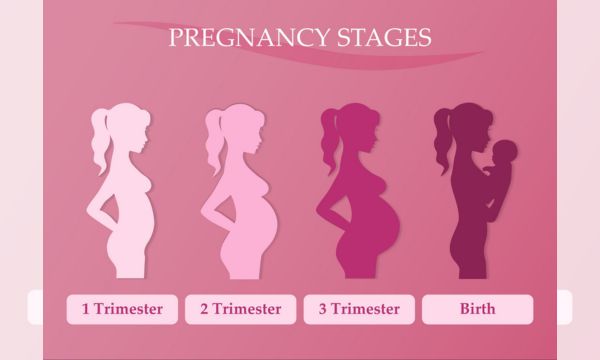Gestational Calculator
Ad
Have you ever heard of a gestational calculator? If you’re in the sweet wait, you’ll definitely hear this term a lot from now on.
In case you don’t know, a gestational calculator is an online tool or app that helps you monitor the progress of your pregnancy more closely.
It is very useful for pregnant women, health professionals and other people who want to better understand how a pregnancy develops.
Ad
Therefore, the gestational calculator can calculate the gestational age, which is the number of weeks and days that have passed since the beginning of the pregnancy.
Thanks to this value, it is possible to know what stage of development the baby is at, and even calculate the estimated date of birth, which usually happens after 40 weeks of the beginning of pregnancy.
Ad
If you want to know more about the gestational calculator, keep reading and check out the complete material I have put together for you!
How is Gestational Age Calculated?
As mentioned previously, gestational age is calculated from the day of the last menstrual period. Therefore, to know how many weeks have passed, you will need to count on a calendar how many weeks there are between the date of your last menstruation and the current date.
To speed up the process, you can use a gestational calculator app or online tool, and in a matter of seconds you will know your gestational age. To do this, simply download the app and enter the date of your last period.
What If I Don’t Know the Date Of My Last Period?
This is an excellent question, as not all women keep track of their menstruation date. Therefore, it may happen that a woman becomes pregnant and does not remember the date of her last menstrual period. I confess it happened to me once! But that’s no problem at all.
Although to calculate gestational age it is necessary to know the date of the last menstrual period, there are other ways of knowing, such as laboratory and imaging tests, such as ultrasound. So not all is lost.
Thus, when a woman discovers that she is pregnant, but does not remember the last day she menstruated, the obstetrician requests a beta HCG blood test, which checks the concentration of this hormone in the blood. This hormone changes concentration as the pregnancy progresses. With the result it is possible to calculate the gestational age.
Likewise, through an ultrasound exam the baby’s development can be easily observed, in addition to the height of the uterus. All of these tests are normally indicated during the prenatal consultation.
How to Know the Baby’s Birth Date?
Certainly with the blood test and ultrasound it is possible to observe the baby’s growth. Using the date of your last menstrual period, you can also calculate the estimated date of birth. To do this, we must count 7 days after menstruation and another 9 months after the month of the last menstruation.
I’ll give you an example so you can understand better. If “Ana” had her last menstrual period on January 14th, the baby will probably be born between October 20th and 21st. We must remember that this calculation takes into account that the birth will take place in week 40, but a baby from week 37 is already ready to be born.
And also, it is worth highlighting that the probable birth date only serves to guide the pregnant woman and even the doctors, as it cannot show the exact day on which the baby will be born. We know that they arrive when they want!
Periods of Pregnancy

Pregnancy Stages
Pregnancy is normally divided into three periods or trimesters, each lasting approximately three months. Each period represents a different phase in the development of the baby and the mother’s body. See what they are:
First Trimester (Week 1 to 12)
- The count starts from the first day of the last menstrual period, even if conception occurs approximately two weeks later.
- The embryo develops into a fetus
- During this first period, transformations begin in the woman’s body and in the development of the fetus.
- It is in this first trimester where the baby’s main organs begin to form.
- The pregnant woman may experience fatigue, nausea and increased urinary frequency.
Second Trimester (Week 13 to 27)
- As the second period begins, unpleasant symptoms begin to subside and the pregnant woman can feel better.
- The baby continues to grow “at full speed”, and the organs continue to develop.
- At the end of this quarter, the baby’s sex can already be identified.
- The mother begins to feel the first fetal movements, the famous “kicks”.
Third Trimester (Week 28 until delivery)
- The baby continues to develop and gain weight.
- Due to the enlargement of the belly, the woman may feel some discomfort.
- It is normal for a pregnant woman to start experiencing contractions, which indicates that the uterus is preparing for birth.
- Pregnant women may experience bloating, heartburn and difficulty sleeping due to the enlargement of their belly.
- The baby begins to position itself head down in preparation for vaginal birth.
Care During Pregnancy
We know well that pregnancy is not a disease as some people still think, but it is necessary to take certain precautions to have a healthy pregnancy. Check out the main precautions below:
- Have medical monitoring from the beginning to the end of the pregnancy;
- Maintain a balanced diet;
- Skin care;
- Exercise (consult your doctor first);
- Monitor blood pressure;
- Keep your vaccination card always up to date;
- Pay attention to your body’s signals;
- Do not self-medicate;
- Do not consume alcoholic beverages or cigarettes;
- Avoid consuming raw foods, such as fish and meat;
- Do not dye your hair;
- Take supplements recommended by your obstetrician daily;
- Keep exams up to date.
Conclusion
The gestational calculator is a useful tool for tracking the progress of your pregnancy, calculating your gestational age and estimated due date based on your last menstrual period. This date can help you prepare better for the big moment of childbirth. And remember to always follow your doctor’s instructions during this special period so that your baby has a healthy development.
 The Best Video and Photo Editing Applications
The Best Video and Photo Editing Applications
Ad Can you imagine creating those spectacular videos or posting incredible photos that even your favorite influencers […]
More Best Apps for Editing Photos on Your Cell Phone
Best Apps for Editing Photos on Your Cell Phone
Ad Are you looking for how to edit your photos and don’t even know where to start? […]
More Exploring the Possibilities of Scanner via Cell Phone: Tips and Tricks
Exploring the Possibilities of Scanner via Cell Phone: Tips and Tricks
Ad If you still doubt that with your smartphone in hand it is possible to do a […]
More